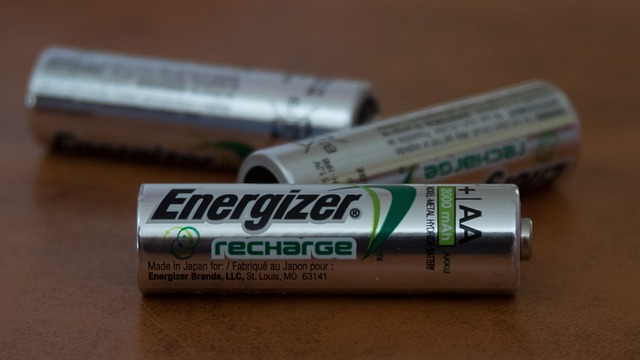Cost of Lithium Ion Batteries for Medical Applications – Cost And Need
Feb 20, 2020 Pageview:1682
Lithium ion batteries are used in numerous devices and gadgets. It is most popular in the electronics and automotive industry. The electronics industry widely uses lithium ion batteries because of the portability and high power it provides to the devices. Gadgets like mobile phones, tablets and laptops also use lithium ion batteries because these batteries tend to last longer and are rechargeable on their own. The most important advantage of lithium ion battery is its high energy density. As compared to other batteries, rate of discharge of lithium ion batteries is also lower.
How Do Lithium Ion Batteries Used In Medical Applications?
The most critical component of any medical device is its battery. Lithium ion batteries are ideal for medical devices and equipment because they are lightweight, small in size and have a long life span. Manufacturers of medical devices and equipment look for smaller batteries as these devices are becoming smaller in size, portable and have high energy and performance. Equipment including hearing aids, surgical tools, pacemakers, robots, monitors, etc. have gained benefits from the implementation of lithium ion batteries in their design and function.
For the treatment of cardiac diseases, there are total 3 types of devices that are implanted inside the human body. These are defibrillator, pacemakers and ventricular assist devices. All three of them have prolonged their life span up to 10 years by using lithium ion batteries. The technology is advancing and its use in science and medicine is increasing. Lithium ion batteries are playing vital part in the development of medical equipment and devices. The manufacturers of medical devices focus on the runtime, life span and rate of discharge of batteries before using them in the devices. Lithium ion batteries tick all the boxes in being the most efficient batteries for medical devices.
What Is The Cost Of Lithium Ion Batteries Recently?
According to a recent survey and research, over the past 8 years cost of lithium ion batteries has declined because of its increased usage and popularity. However, they are still considered pricey when it comes to using in medical devices. The overall cost of medical devices has gone up for this very reason as well. The cost of lithium ion battery also depends on the size and functionality of it as they come in different sizes and pieces. Another factor that adds to the cost of lithium ion batteries for medical devices is the mandatory approvals that need to be carried out in order to manufacture the medical device. It makes the whole process very expensive, which eventually adds up to the cost of the medical equipment and device.
The price of a lithium ion battery ranges from $100 to $200 per kilowatt hour in recent times. It is expected that the prices of lithium ion batteries in medical field is going to drop by at least 50% in the coming few years. This is mainly because of its mass production as they are widely being used in the development of science and medicine. If purchased in mass quantity, then the cost per lithium battery would be lower than the average market price.
What Is The Market Need Of Medical Lithium Ion Batteries?
As per a recent survey, the market of lithium ion batteries is expected to grow to approximately $92.2 billion by 2024. And the growth of medical lithium ion batteries is expected to grow up to $2.2 billion by 2024, with a CAGR of 4.6% from 2019 to 2024. As the prices of medical lithium ion batteries are declining, it is opening up opportunities for its growth in science and medicine. Another reason for increase in the market of medical lithium ion batteries is the increased demand of medical devices and equipment like pacemakers, thermometers, monitors, etc. Every reputed hospital wants to be equipped with these devices, thus, the overall demand of lithium ion batteries in medical field is on the rise. The fact that lithium ion batteries are rechargeable and ideal for portable devices makes it ideal for medical devices.
However, lithium ion batteries are still mostly used in other industries like electronics, automotive and industrial. Medical industry is still not very popular user of lithium ion batteries. They have very little market share. Having said this, manufacturers of medical devices are rapidly increasing the usage of lithium ion batteries because of their numerous advantages. Medical industry in the fifth largest gets the usage of lithium ion batteries. If we go region wise, North America is the biggest user of lithium ion batteries followed by Europe, Asia Pacific and RoW (Rest of the World).
Lithium ion batteries have benefited medical industry largely as more and more small sized and portable devices need to be created and developed for the development of medicine and science. Earlier usage of lithium ion batteries was only restricted to few medical devices like thermometers etc. But now the usage is slowly increasing. Especially the cardiac department has greatly benefited from lithium ion batteries. All in all, the future of lithium ion batteries in medical industry looks promising, especially in the segments of patient monitoring, cardiovascular, general medical care, and orthopedic. Evolving trends, which have a direct effect on the dynamics of the market of medical batteries including increase in the recycling of lithium ion batteries, so the waste is reduced.
Lithium ion batteries are useful in patient monitoring, diagnosis and therapeutic treatments, which made it usage popular in medical industry. The growth of lithium ion batteries will remain largest because of their unique functionality and characteristics. It has voltage and high energy density, which makes it preferred choice for cardiovascular devices and medical devices that can be implanted in the human body.
- Prev Article: Lithium-ion Battery Storage Requirements- Storage Analysis
- Next Article: Cost of Lithium-Ion Batteries for Solar-Use and Cost
Leave Message
Hottest Categories
-
Hottest Industry News
-
Latest Industry News












